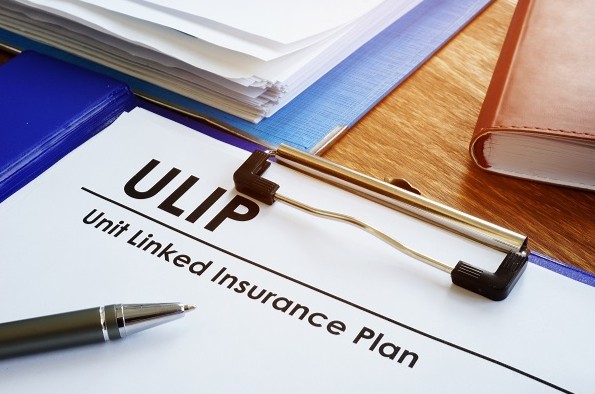
FOMO
Are you tired of constantly stressing about the security of your digital transactions? Well, worry no more because we have the perfect solution for you!
In this article, we are going to share 10 foolproof ways to secure your digital transactions today. These methods are simple yet highly effective, ensuring that you can finally have peace of mind.
So, if you are ready to take charge of your online financial transactions, continue reading to uncover the key to a secure digital future.
Key Takeaways
So, let’s wrap things up. Following these 10 steps can really help keep your digital transactions secure.
First and foremost, make sure you use strong and unique passwords. Don’t use the same password for multiple accounts, and consider using a password manager to keep track of them all. And don’t forget to enable two-factor authentication for an extra layer of protection. It may seem like a hassle, but it’s definitely worth it.
When it comes to connecting to public Wi-Fi networks, be cautious. They can be risky, so try to avoid using them for sensitive transactions whenever possible. If you have to use public Wi-Fi, consider using a virtual private network (VPN) to encrypt your connection and protect your data.
First, use Fake Credit Cards using Credit card generators first, and see if it is actually a legit website or not.
Phishing scams are another common threat to be aware of. These scams can trick you into giving away your personal and financial information, so always be on the lookout for suspicious emails, messages, or websites. If something seems off, don’t click on any links or provide any information until you’ve verified the source.
Regularly updating your passwords is also crucial. Set reminders to change your passwords every few months, and make sure to use a mix of letters, numbers, and special characters. And if you’re using secure payment platforms for your transactions, you’re already taking a step in the right direction. These platforms often have built-in security measures to protect your information.
It’s also important to keep an eye on your accounts for any suspicious activity. Review your bank statements and credit card transactions regularly, and report any unauthorized charges or suspicious activity immediately.
By staying informed and proactive, you can ensure the safety of your online transactions. Remember, it’s better to be cautious and take these extra steps than to risk falling victim to cybercrime. Stay safe out there!
Strong and Unique Passwords
Creating strong and unique passwords is really important to keep your digital transactions secure. A strong password is one that’s really hard for others to guess or crack, giving your sensitive data an extra layer of protection. When you’re coming up with a password, it’s a good idea to use a mix of uppercase and lowercase letters, numbers, and special characters. This combination makes it much harder for hackers to guess your password using brute force methods. It’s also a good idea to avoid using personal information that’s easy to guess, like your own name or birthdate, because that can make your password vulnerable to targeted attacks.
Another thing to consider is the length of your password. Generally speaking, longer passwords are more secure because they offer a greater number of possible combinations. It’s a good idea to aim for a minimum of 12 characters, but the longer the better.
It’s also really important to update your passwords regularly to keep your security strong. One way to make this easier is to use a password manager. These tools can generate and store secure passwords for all your different accounts, so you can have unique passwords for each account without the risk of forgetting them.
Two-Factor Authentication
Adding an extra layer of security to your online accounts, two-factor authentication really steps up the protection of your digital transactions. With two-factor authentication, you have to pass a second security test along with your password. This could be entering a special code sent to your phone or using biometric verification like your fingerprint or facial recognition. By adding this extra step, it becomes way harder for hackers to break into your account and get hold of your sensitive information.
Setting up two-factor authentication is a smart move to secure your digital transactions. It gives you an extra level of confidence that you’re the authorized user of your account. This is especially important when you’re doing financial transactions online because it helps protect your money and personal data.
To get two-factor authentication set up, just reach out to your bank or credit union. They’ll walk you through the process and help you turn on this feature to protect your digital transactions. By using two-factor authentication, you can rest easy knowing that your online accounts are safe and your digital transactions are well-guarded.
Avoid Public Wi-Fi
Securing your digital transactions becomes even more important when it comes to avoiding public Wi-Fi networks. Public Wi-Fi networks can be risky and unsafe for conducting sensitive transactions. These networks are vulnerable to cyber attacks and data interceptions, which can put your personal and financial information at risk.
To protect yourself, it’s a good idea to use a virtual private network (VPN) when connecting to public Wi-Fi. A VPN creates a secure and encrypted connection between your device and the internet, ensuring that your data is safe from prying eyes. By encrypting your internet traffic, a VPN prevents unauthorized access and protects your sensitive information.
In addition to using a VPN, it’s important to disable public file sharing and configure your device’s settings to prioritize security when connected to public Wi-Fi. This includes turning off automatic connections to unknown networks, enabling firewall protection, and keeping your operating system and security software up to date.
Ideally, it’s best to avoid public Wi-Fi networks altogether when engaging in digital transactions. Instead, try to use secure and private networks, such as your personal mobile data network. By doing so, you can reduce the risk of unauthorized access to your data and ensure the security of your digital transactions.
Use Banking Alerts
When it comes to safeguarding your digital transactions, it’s a good idea to use banking alerts. They provide instant notifications of account activity, so you can stay on top of things. By setting up banking alerts, you’ll receive real-time updates on your account balance, new transactions, and failed login attempts. These alerts give you valuable information to monitor and protect your financial transactions.
In today’s digital landscape, secure payment methods are more important than ever. Banking alerts offer a proactive approach to detecting and preventing potential fraudulent activity. They act as an early warning system, allowing you to respond quickly to any suspicious account activity. If you receive an alert for an unauthorized transaction, it’s crucial to contact your bank immediately to report the incident and take necessary actions to secure your account.
With the increasing number of data breaches and cyber threats, it’s essential to stay vigilant in monitoring your accounts. Banking alerts help you stay informed and keep track of your financial activities, empowering you to notice any irregularities promptly. Combined with other security measures like strong passwords and two-factor authentication, banking alerts enhance the overall security of your digital transactions.
Beware of Phishing Scams
Hey there! Just wanted to give you a heads up about the importance of being cautious and vigilant when it comes to unsolicited emails, messages, or phone calls asking for your personal or financial information. These sneaky cybercriminals often use phishing scams to trick people into giving away sensitive data. But don’t worry, I’ve got some tips to help you secure your digital transactions and stay safe.
First things first, always double-check the authenticity of the sender before clicking on any links or sharing any sensitive information. Keep an eye out for any spelling or grammar mistakes in emails, as these can be red flags for phishing attempts. These scammers are pretty crafty, so it’s always a good idea to verify the sender’s email address or reach out to the company directly to confirm the request.
It’s also important to avoid giving out personal or financial information over the phone or through unsecured websites. These phishing scams often rely on manipulation and social engineering tactics to deceive their victims. Remember, reputable organizations will never ask for sensitive info through these channels.
To give yourself an extra layer of protection, make sure to keep your browser and security software up to date. Regularly updating your software can help you spot and prevent phishing attempts, as developers are constantly releasing patches and security enhancements to keep you safe.
Trustworthy Financial Apps
When it comes to choosing financial apps, it’s crucial to prioritize your security. You want to make sure you’re using apps that have strong security features and adhere to industry standards and regulations. After all, protecting your money should be the number one priority.
One key feature to look for is two-factor authentication. This adds an extra layer of protection by requiring you to verify your identity in two different ways. It makes it much harder for unauthorized individuals to access your financial information.
Encryption is another important security feature to consider. It scrambles your data so that even if someone does manage to intercept it, they won’t be able to make sense of it.
Another factor to consider is the reputation of the financial institution behind the app. Opt for apps from well-known and reputable institutions. They’ve a reputation to uphold and are more likely to prioritize security and reliability. Additionally, take the time to read user reviews and check the app’s ratings. This will give you a good sense of how well the app performs and whether users trust it.
It’s also important to make sure the financial app complies with industry standards and regulations. This ensures that your data is being handled securely and that the app follows best practices for payment security. Look for clear and transparent information about the app’s privacy policy and data protection measures. This transparency builds trust and reassures users that their information is being handled responsibly.
Verify Every Transaction
Make sure to double-check the details of each transaction to ensure its legitimacy and protect against unauthorized or fraudulent activity.
When making digital transactions, it’s important to take steps to secure your financial information. Start by verifying the security code and billing address of your credit card to confirm that the transaction is valid. This simple step can help prevent unauthorized charges and ensure that your payment goes to the intended recipient.
For added security, consider requesting a phone number to check for any discrepancies and validate the provided email address. Verifying contact information can help confirm the authenticity of the transaction and reduce the risk of fraud.
Additionally, you can enhance the security of your payment data by implementing tokenization. Tokenization encrypts sensitive information, like credit card numbers, so that they aren’t stored in their original form. Even if a hacker gains access to the data, it would be useless to them.
When choosing an e-commerce platform for your digital transactions, make sure to opt for a secure and reputable one. Look for platforms that prioritize security and have robust measures in place to protect your information.
Secure E-commerce Platform
When you’re considering an e-commerce platform, it’s important to choose one that prioritizes customer data protection and offers robust security measures. The platform you use plays a crucial role in safeguarding customer information during digital transactions. So, it’s crucial to look for platforms that offer data encryption and secure payment processing to prevent data breaches and protect sensitive information.
Investing in a secure e-commerce platform can help you avoid potential security incidents and save money in the long run. While these platforms may come with a higher cost, the protection they provide outweighs the initial investment. So, it’s worth considering the benefits of a secure platform.
When selecting an e-commerce platform for your online store, make sure to prioritize established companies with a solid reputation for security. Look for platforms that have a track record of protecting against cyber threats. By choosing a reputable platform, you can ensure that your customers’ data is safe and secure. This will give them peace of mind when making digital transactions on your website.
Ultimately, choosing a secure e-commerce platform is an essential step in building trust with your customers and protecting their valuable information. So, take the time to research and select a platform that offers the security features you need for your online business.
Cyber Liability Insurance
Cyber Liability Insurance is a must-have in today’s digital landscape. With cyber threats becoming more sophisticated, it’s crucial for businesses to protect themselves financially. This insurance coverage offers financial assistance for costs related to data breaches and cyber attacks.
When it comes to cyber incidents, the expenses can quickly add up. Cyber Liability Insurance helps cover legal fees, customer notifications, credit monitoring, and other associated expenses. It can even provide coverage for losses resulting from cyber extortion and ransomware attacks.
To ensure your business is adequately protected, it’s important to comply with Data Security Standards like the Payment Card Industry Data Security Standard (PCI DSS). These standards provide guidelines for safeguarding customer information and reducing the risk of a data breach.
By obtaining cyber liability insurance, you can have peace of mind knowing your business is financially secure in the event of a cyber incident. By transferring the risk to an insurance provider, you can focus on growing your business without constant worry.
Protect your business today by exploring cyber liability insurance options.
Educate Employees on Security Protocols
To effectively protect your company and customer data, it’s crucial to educate employees on security protocols.
Make sure your employees understand the importance of creating strong passwords and recognizing phishing scams. Provide clear guidelines on password creation, so they know to use unique and complex passwords for their accounts. Encourage the use of a combination of uppercase and lowercase letters, numbers, and special characters to enhance password security.
Teach employees how to identify and avoid phishing scams. Make them aware of the signs of suspicious emails, links, and attachments. Remind them to verify the authenticity of any requests for sensitive information before sharing it. It’s also important to emphasize the significance of two-factor authentication. This extra layer of security adds an additional step to the login process, making it harder for unauthorized individuals to access accounts.
Lastly, highlight the risks of using public Wi-Fi for sensitive transactions. Encourage employees to use secure networks and explain the importance of regularly updating software and using encryption to protect sensitive customer information during digital transactions.
Conclusion
So, to wrap things up, following these 10 steps can really help keep your digital transactions secure.
It’s important to use strong and unique passwords, and don’t forget to enable two-factor authentication for an extra layer of protection.
Be cautious about connecting to public Wi-Fi networks, as they can be risky. And always stay on the lookout for phishing scams, as they can trick you into disclosing sensitive information.
Remember to regularly update your passwords, and consider using secure payment platforms for your transactions.
It’s also a good idea to keep an eye on your accounts for any suspicious activity.
By staying informed and proactive, you can ensure the safety of your online transactions.
Write and Win: Participate in Creative writing Contest & International Essay Contest and win fabulous prizes.


